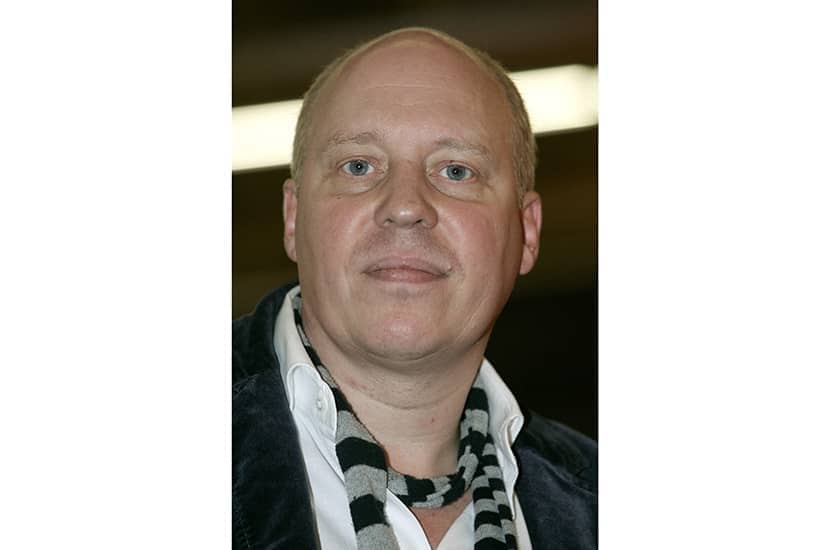‘One morning in late October 1988,’ begins The Long Song of Tchaikovsky Street, ‘this dapper-looking guy from Leiden asked me if I might be able to deliver 7,000-odd Bibles to the Soviet Union.’ It’s the kind of line you might hear in a bar when you accidentally catch the eye of the resident storyteller — a tale so implausible it could just be true. Where on the scale between fact and fiction Pieter Waterdrinker’s memoir lies is impossible to tell, and beside the point: his engrossing 400-page account of post-Soviet disorder grips you and doesn’t let go.
We meet the author — who may be the successful Dutch novelist himself, a projection of him, or most likely a composite version of the two — living in Saint Petersburg with his wife Julia and three cats on Tchaikovsky Street, named not after the composer but ‘some communist or other’. This is characteristic of Waterdrinker’s informal, unpolished style, nimbly translated by Paul Evans. His prose is supercharged with cantankerous remarks (Lenin is ‘a son-of-a-bitch from Simbirsk’) and sweeping philosophical quips (happiness is ‘the absence of unhappiness’).
Grudgingly he agrees to write a book to mark the centenary of the Russian revolution — he uses the money to fund his brother-in-law’s boat — and decides to focus on Tchaikovsky Street, where he and Julia are the latest, and it turns out the last, of a long line of illustrious former residents, including the symbolist poet Zinaida Gippius and Dostoevsky’s widow. Rasputin, ‘that holy fool’, lived just around the corner. And so the book becomes three stories folded in one: his witnessing of Russia’s capitalist boom after the Soviet collapse; his present life in Saint Petersburg; and a brief history of the revolution.
The first is the meatiest. Before becoming a writer, Waterdrinker travelled to the Soviet Union in the late 1980s, just as capitalism was emerging and the Leninist dream was being ushered out: ‘The Soviet Union was being sullied by the day, but at the same time the red banners with party slogans still hung over the streets.’ There were rumblings of independence in the Baltic and Caucasus, while Gorbachev’s economic reforms and, crucially, the introduction of worker-owned cooperatives rapidly altered the rules of the game. What Waterdrinker encounters is a dizzying free-for-all market and many legal grey areas. ‘When the old is dying and the new cannot be born,’ wrote the Italian thinker Antonio Gramsci, ‘a great variety of morbid symptoms appear.’
Waterdrinker soon finds himself in the quagmire of Russia’s budding capitalism, ostensibly as some kind of travel agent. But this is no usual nine-to-five job; his business partner’s name, Swindleman, says it all. The Russia he depicts is one of corruption and self-interest, bearing all the hallmarks of the 1990s gang culture immortalised in the Brat films of Aleksei Balabanov and the novels of Viktor Pelevin — stories of wily associates, briefcases full of money, baths of Soviet champagne and cold-blooded murders.
These passages are balanced by gentler ones, most poignantly about the author’s ailing father whom he visits in hospital in Holland:
After I’d dipped the sponges in the glass of water and smeared them all around my father’s mouth, he tried to illegally slurp a couple of droplets by stiffly pursing his mouth and swivelling his tongue, all the while looking up at me intensely grateful, like a child who had done something wrong.
Being a former war correspondent, Waterdrinker is outstanding on detail.
Drawing on writers including Curzio Malaparte, Nabokov and Gippius, he recounts the bloody machinations of the Bolsheviks with barely concealed disgust. But he sees today’s newly minted oligarchs as virtually indistinguishable from Stalin and his cronies — except that their ‘megalomaniac quarters’ have relocated to the suburbs of Moscow: ‘They are once again cradled by servants, nannies, cooks, bodyguards, chauffeurs, gardeners, yoga and sports instructors’ and merely focus on ‘earthly pleasures, status and fleeting fame’. ‘History doesn’t repeat itself, it rhymes.’
The book stops short of suggesting how we might reframe our perception of Russia and its future in this light. But perhaps that’s the point: we should be looking back, not forwards. ‘The future is certain; it’s the past that’s unpredictable’ goes the old Soviet joke — one that Waterdrinker no doubt has heard.






Comments